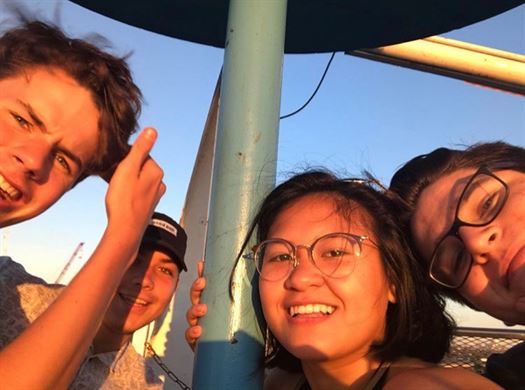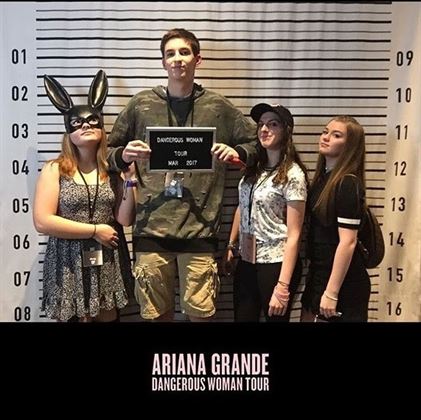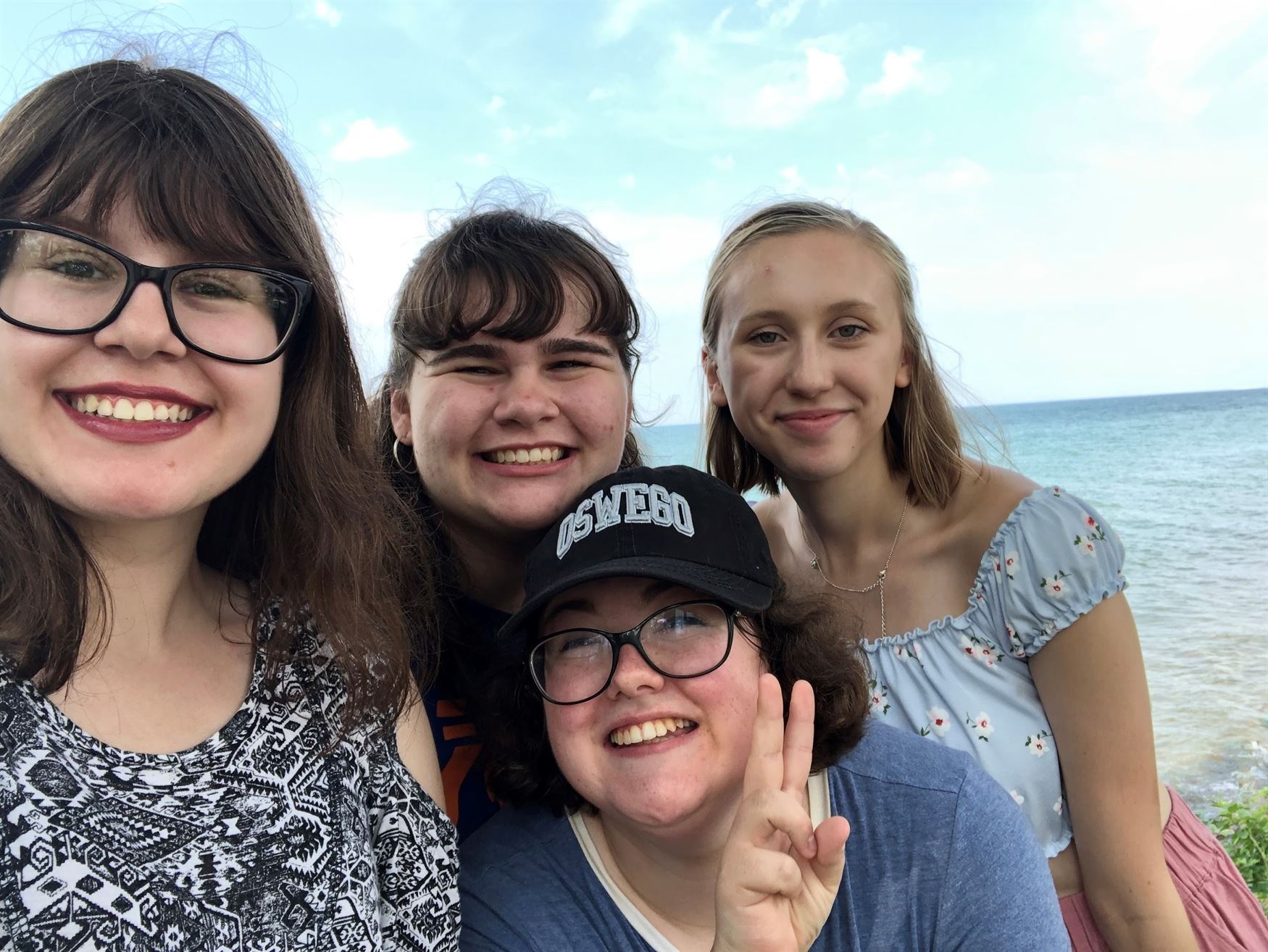In today’s world, young people may prefer to make online friends because they feel like their connection online is more authentic and special than real-life friends. Many people who make online friends may meet them in real life and deepen their bond. People are no longer afraid of meeting people on the internet and some of these strangers become their best friends.
Many students sit behind a screen scrolling and tapping through their phones for hours, so they are bound to make some friends in the same online community as them.

Santos and her online friends share laughter and smiles at a carnival.
Photo courtesy of Joni Mae De Los Santos
Joni Mae De Los Santos, a freshman journalism major, met some of her online friends through Poll Party, a Facebook group where people post questions that others can answer and interact with each other in the comments.
Santos was one of the moderators of the group with over 21,000 members from all over the world. As a moderator, her job was to make sure the group was clean and free of slur language. Little did Santos know that this online group would connect her to long-term friendships.
“I started connecting with a lot of people then I remembered this random guy made a group chat with some Poll Party members,” Santos said. “Our group chat grew more and more. We started becoming closer and more personal and next thing you know I’m at a carnival with people whom I only knew online.”
Some students have social anxiety and are shy and introverted in person which is why they find it easier to make friends online.
In a survey conducted with Montclair State University students about which app they used to make online friends, 53% of students said Instagram and 36% said Twitter. Other apps that students have used to make online friends from most used to least used were through game voice chats, Facebook, Discord, Snapchat, Tinder, Tumblr, Youtube and Bumble.
Surprisingly, 75% of students from the survey said that they found it easier to make online friends and that online friends are easier to find common ground with because they meet through shared interests. They also feel like they can be more themselves online rather than being someone who they are not in person.
Melanie Yabroudy, a junior communication and media arts student, has been friends with her online friends for seven years now. She met them through Instagram by commenting on an old picture of the former boy band, One Direction, which formed their bond.
Yarbroudy’s friends live in Connecticut and Missouri, but the long distance doesn’t affect them. They have been in touch ever since and will be reunited again in August a friend’s wedding.
“I feel that with my online friends I can be more unfiltered than I am in real life,” Yabroudy said. “They are my escape from reality and they have become such an important part of my life and they help me see different perspectives in life since they come from different backgrounds.”
Students say their online friends help each other out when their real world friends can’t be there for them. For some people, they would rather open up to their online friends because speaking to someone behind a screen can feel more comfortable and help avoid stress.
Aneta Ostasz, a senior communication and media arts major, has found comfort in talking to her online friends about her problems and vice versa. Ostasz made her online friends through Tumblr and they later formed a group chat on Kik, a messaging app. There they talked about Youtube and planned to go to different conventions together.
“My online friends have been there through thick and thin. I had a very rough college journey and they were there to support me throughout the way,” Ostasz said. “I was also there for one of my friends when she came out as lesbian to her parents which was a very hard moment for her. She reached out to us first before she reached [out to] anyone else. Online friends are so important when it comes to dealing with tough situations.”
Despite the closeness these students find in their online friendships, there is a certain stigma around these kind of virtual relationships. Many people don’t think that online friends can be real friends and that some of them can’t be trusted since they could be a catfish, a term that refers to someone who fakes their identity online to lure someone else into a relationship.

Sattan (left) and her online friends meet up to attend the Ariana Grande Dangerous Woman Tour.
Photo courtesy of Olivia Sattan
Olivia Sattan, a freshman film major, believes that the stigma around online friendships should be broken because most of it is not true.
“A lot of the stigma comes from older people who didn’t grow up with social media and watched shows like ‘To Catch a Predator’ from NBC and that’s how they understood their information,” Sattan said. “I think people need to educate themselves more and realize that not everyone on the internet is a bad person or trying to hurt you. Online friends are sometimes the best people you can meet.”




